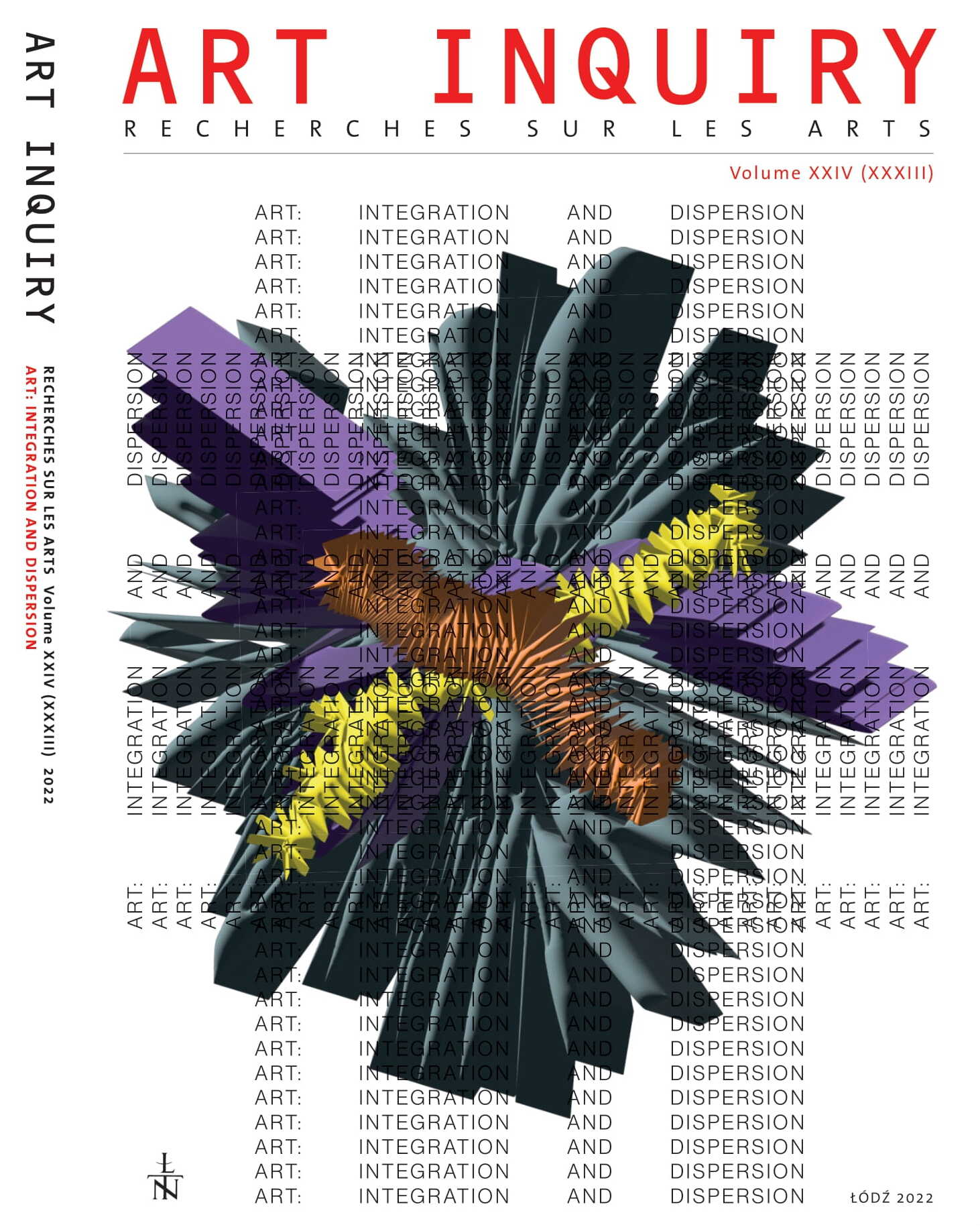Podejścia teoretyczno-konceptualne do cyberteatru
DOI:
https://doi.org/10.26485/AI/2022/24/6Słowa kluczowe:
teatr, cyberteatr, nowe technologie, wirtualność, koronawirusAbstrakt
Artykuł podejmuje zagadnienie integracji i rozproszenia w teatrze. Teatr jest sztuką reprezentacji, więc przedstawiany jest jako jednolity i integralny, poczynając od zasady trzech jedności Arystotelesa, poprzez Szekspira, Wielki teatr świata Calderóna de la Barca czy model teatru totalnego Erwina Piscatora i Waltera Gropiusa. Wraz z wybuchem pandemii koronawirusa teatr uległ zmianie, nie tylko sam z siebie, ale również z konieczności, stał się rozproszony i nieprecyzyjny. Zerwał z jednym ze swoich fundamentów: spotkaniem widzów z aktorami w wyznaczonej przestrzeni. Teatr przestał być miejscem przedstawiania, a scena została przeniesiona donikąd. Teatr cyfrowy założył porządek antyarystotelesowski, została zerwana klasyczna zasada trzech jedności: miejsca, czasu i akcji. Jednak pomimo tego, że pandemia wstrząsnęła fundamentami teatru a ten wykorzystał wszystkie środki, jakie miały mu do zaoferowania nowe technologie, nie zostały zniesione fundamentalne pojęcia teatru i przestrzeni teatralnej.
Bibliografia
Agamben Giorgio (2009) What Is an Apparatus? And Other Essays, transl. D. Kishik, S. Pedatella, Stanford, California: Stanford University Press.
Baudrillard Jean (1994) Simulacra and Simulation, transl. S. Faria Glaser, Ann Arbor: The Uni¬versity of Michigan Press.
Brook Peter (1996) The Empty Space, New York: Touchstone.
Calderón de la Barca Pedro (1990) The Great Theatre of the World, London: Dramatic Publishing Company.
Deleuze Gilles, Guattari Félix (1987) A Thousand Plateaus: Capitalism and Schizophrenia, Minneapolis: University of Minnesota Press.
Dubatti Jorge (2003) El convivio teatral. Teoría y práctica del Teatro Comparado, Buenos Aires: Atuel.
Dubatti Jorge (2007) Filosofía del teatro I: convivio, experiencia, subjetividad, Buenos Aires: Atuel.
Duvignaud Jean (1965) Sociologie du théâtre. Essai sur les ombres collectives, Paris: Presses universitaires de France.
Eco Umberto (1989) The Open Work, transl. A. Cancogni, Cambridge, Massachusetts: Harvard University Press.
Grotowski Jerzy (2002) Towards a Poor Theatre, E. Barba, ed., New York: Routledge.
Ingarden Roman (1973) The Functions of Language in the Theater, [in:] The Literary Work of Art. An Investigation on the Borderlines of Ontology, Logic, and Theory of Literature, transl. G. G. Grabowicz, Evanston: Northwestern University Press, pp. 377-393.
Navarro de Zuvillaga Javier (2004) Walter Gropius: Teatro total de Walter Gropius = Walter Gropius'sTotal Theatre, Madrid: Rueda.
Pavis Patrice (1985) Voix et images de la scène: pour une sémiologie de la réception, Lille: Presses universitaires de Lille.



